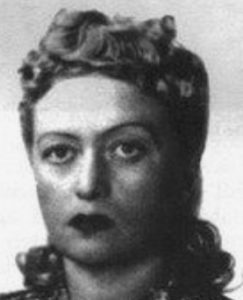Israel’s Most Popular Singer
 Ishay Ribo (b. 1989) was born in Marseille, France to a family of traditional Sephardic Jews from Morocco and Algeria. When he was a child, the family became more religious and made aliyah. At 13, while studying in yeshiva, Ribo began writing music and took up playing the guitar. A few years later, he formed a religious heavy metal band with friends. During his time in the Israeli military, he served in the Technology and Maintenance Corps and sang in the IDF choir. In 2012, he was invited to work with popular Israeli musician Idan Raichel, and in 2014 with renowned rabbi (and composer) Yitzchak Ginsburgh. That same year Ribo released his debut album, which was certified gold. His third album went platinum, with the song Lashuv HaBaita becoming the number one song on Israeli radio. He followed this up with Sibat HaSibot, which became the most-played song on Israeli radio in 2021. Ribo’s unique style combines modern sounds and lyrics with ancient Biblical verses and even passages from across Rabbinic literature. (His popular Seder haAvodah, for instance, weaves together verses from the Yom Kippur prayer service and Talmudic account of events in Jerusalem’s Holy Temple.) Last week, Ribo became the first Israeli ever to perform at Madison Square Garden, to a sell-out crowd of over 15,000. Ribo’s music is beloved by Jews around the world, and by both secular and religious Israelis. He has been credited with bridging the divide between the two. He also has the distinction of being the most popular Orthodox Jewish artist on YouTube (currently with 314,000 subscribers and over 400 million views). Ribo has five children and still studies Torah regularly in a kollel (a Torah-learning institution for married men).
Ishay Ribo (b. 1989) was born in Marseille, France to a family of traditional Sephardic Jews from Morocco and Algeria. When he was a child, the family became more religious and made aliyah. At 13, while studying in yeshiva, Ribo began writing music and took up playing the guitar. A few years later, he formed a religious heavy metal band with friends. During his time in the Israeli military, he served in the Technology and Maintenance Corps and sang in the IDF choir. In 2012, he was invited to work with popular Israeli musician Idan Raichel, and in 2014 with renowned rabbi (and composer) Yitzchak Ginsburgh. That same year Ribo released his debut album, which was certified gold. His third album went platinum, with the song Lashuv HaBaita becoming the number one song on Israeli radio. He followed this up with Sibat HaSibot, which became the most-played song on Israeli radio in 2021. Ribo’s unique style combines modern sounds and lyrics with ancient Biblical verses and even passages from across Rabbinic literature. (His popular Seder haAvodah, for instance, weaves together verses from the Yom Kippur prayer service and Talmudic account of events in Jerusalem’s Holy Temple.) Last week, Ribo became the first Israeli ever to perform at Madison Square Garden, to a sell-out crowd of over 15,000. Ribo’s music is beloved by Jews around the world, and by both secular and religious Israelis. He has been credited with bridging the divide between the two. He also has the distinction of being the most popular Orthodox Jewish artist on YouTube (currently with 314,000 subscribers and over 400 million views). Ribo has five children and still studies Torah regularly in a kollel (a Torah-learning institution for married men).
Rosh Hashanah Begins Friday Evening! Happy 5784!
Why is Rosh Hashanah the New Year if the Torah Doesn’t Say So?
Words of the Week
The celebration of Rosh Hashanah coincides with the sixth day of Creation, the day when Man was created… For it was man who recognized the Creator within Creation, and brought about the elevation of the entire Creation to that recognition, and thus to the fulfilment of its divine design and purpose.
– Menachem Mendel Schneerson, the Lubavitcher Rebbe


